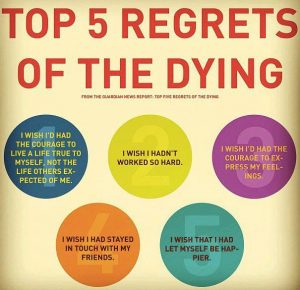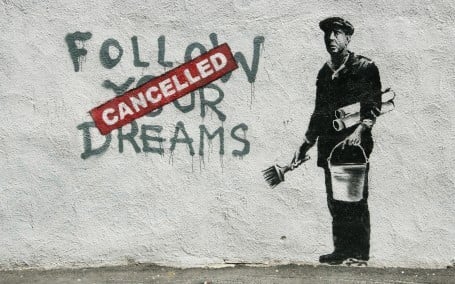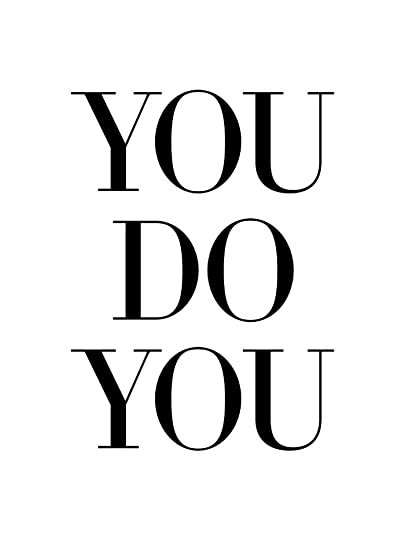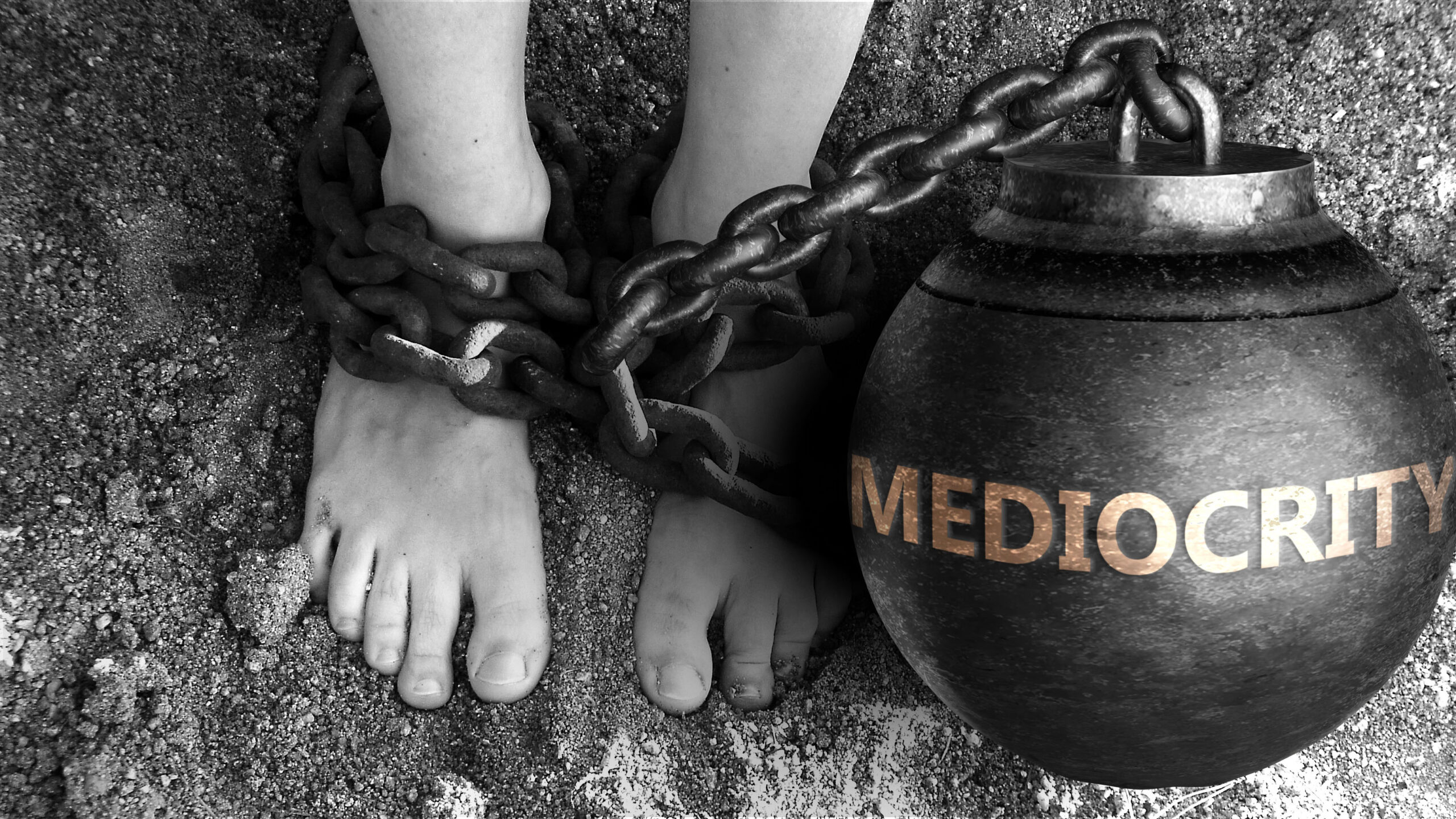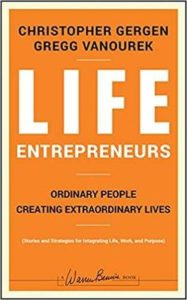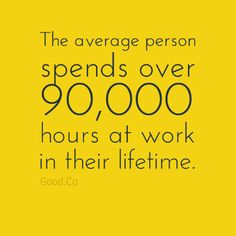Burnout has been a big problem for millions of people for a long time now. And it’s getting worse.
Burnout is also affecting more young people. And the pandemic, with all the extra stressors and pressures it’s brought to so many, is aggravating the burnout problem. These are major ingredients of the “great resignation.”
What is burnout? According to the Mayo Clinic, job burnout is “a special type of work-related stress—a state of physical or emotional exhaustion that also involves a sense of reduced accomplishment and loss of personal identity.”
When we’re burned out, we feel run-down and exhausted or empty. It’s related to overwork (when we work beyond our capacity) and workaholism, a state of addiction to work in which we struggle to switch it off.
The Covid Context
The pandemic has added fuel to this fire. Here’s some recent data:
- 52% of survey respondents reported experiencing burnout in 2021, up from 43% in Indeed’s pre-Covid survey, and 67% say burnout has worsened during the pandemic.
- According to a 2021 Deloitte survey, 77% of respondents say that’ve experienced burnout at their current job, with more than half noting more than one occurrence.
- 91% say the quality of their work has been negatively impacted by having an unmanageable amount of stress or frustration.
- 83% say job burnout can negatively affect their personal relationships.
- Nearly 70% of professionals feel their employers are not doing enough to prevent or alleviate burnout.
Also, the average share of adults reporting symptoms of anxiety disorder and/or depressive disorder, has increased dramatically, from 11% in January-June 2019 (before the pandemic) to 41% in January 2021 (during the pandemic), according to the Kaiser Family Foundation.
Effects of Burnout
We know that job burnout can have major negative effects on our health and lives, including:
- Excessive stress
- Fatigue
- Insomnia
- Irritability
- Anger
- Sadness
- Alcohol and substance abuse
- High blood pressure
- Type 2 diabetes
- Weakened immune system
(Source: Mayo Clinic.)
Symptoms of Burnout
According to the Mayo Clinic, there are many symptoms of job burnout, including:
- Becoming critical or cynical at work
- Feeling low motivation to go to work and start working
- Becoming impatient or irritable with others
- Finding it hard to concentrate
- Feeling disillusioned about the work
- Lacking satisfaction from achievements
- Using food, alcohol, or other substances to self-medicate or tamp down feelings
- Experiencing health issues, including poor sleep, headaches, stomach problems, and more
Causes of Burnout
According to researchers, there are many causes of job burnout, including:
- A sense of a lack of control, including an inability to influence relevant decisions
- Unclear or unrealistic job expectations, including job scope creep
- Dysfunctional work dynamics, such as micromanagers or office bullies
- Lack of social support, including isolation at work or home
- Work demands that impede on important family or social commitments outside of work
- Lack of communication, feedback, and support at work
- Frequent time pressures, raising stress levels
- Limited upward mobility
- The removal of boundaries between work and home
Note that burnout doesn’t come automatically from long hours. Whether it sets in can depend on many factors, including context, personality, mindset, and worker actions.
The Great Resignation
So where does all this leave us, amidst a pandemic with a burnout epidemic? According to a Microsoft survey of more than 30,000 workers around the world, 41% of workers were considering quitting or changing professions this year. In the U.S., more than four million people quit their jobs in April 2021. That’s the biggest increase on record, according to the Department of Labor.
Nearly half of millennials have left a job due to burnout, compared to 42% for all respondents, according to Deloitte.
The reasons for leaving a job are often multifaceted. Common reasons include not only burnout but also:
- Substandard pay
- Lack of meaning at work
- Work that doesn’t fit with, or even violates, our values
- Lack of dignity or respect at work
- Feeling like a cog in a large machine
- Lack of human connection
- Lack of good management and proper recognition
- Poor working conditions
The pandemic has caused a shift in priorities in life for many. In some cases, it’s provided motivation to pursue a dream job or more meaningful work. Or it’s stoked resentment about being treated poorly, or not getting adequate support. The great resignation is a tectonic shift that should wake us all up to the need to think and act anew about work.
What to Do About It
We’re all responsible for our own condition. Including the need to act when a situation is bad or toxic. Though the context is tough for many, there’s still much we can do not only to reduce or eliminate burnout. And to improve our working and living conditions:
- Boundaries. Set boundaries and get better at saying “no.” If we try to please everybody, we’ll fail miserably. No matter how hard we may try, we can never do things just as others might want or expect.
- Breaks. Take regular breaks (e.g., Pomodoro technique) to improve your physical and emotional state, gaining a fresh perspective in the process.
- Exercise. Move your body more to build strength, endurance, and energy. It causes positive reactions in your body that affect your mood, and it helps you sleep well.
- Gratitude. Be grateful for what you have. That can have powerful effects on your quality of life, including improved wellbeing, life satisfaction, sense of connectedness, and physical health.
- Healthy Support Systems. Take time and care to develop relationships based on trust, diversity, reciprocity, commitment, openness, and vulnerability. Build healthy support systems that act like roots that ground us in life. (Source: LIFE Entrepreneurs: Ordinary People Creating Extraordinary Lives)
- Hobbies. Find something you enjoy (e.g., gardening, hiking, photography) and build it into your daily or weekly routine.
- Job Crafting. Craft your work intentionally. Take actions to shape or redesign what you do at work, especially changing your mindset toward your work to make it more satisfying and meaningful, but also changing tasks and relationships when possible.
- Meditation and Mindfulness. Mindfulness has been defined as “awareness that arises through paying attention, on purpose, in the present moment, non-judgmentally” (Jon Kabat-Zinn). Researchers have found many benefits from mindfulness practices, including improvements in mental and physical health, as well as performance.
- Nature. Fresh air and sunlight are essential. Given all our screen time, we need to be sure we’re getting outside enough with walks, hikes, runs, bikes, or trips to the park.
- Nutrition. Our bodies need good fuel if they are to remain resilient and energized.
- Reframing. Reframe things from setbacks or defeats to challenges or opportunities (for learning and growth).
- Sanctuary. Find places or practices of peace (e.g., nature, prayer), allowing you to get beyond your ego and connect with something larger than yourself.
- Savoring. Fully feel and enjoy positive experiences, magnifying and extending them in the process.
- Self-Reflection. Engage in self-reflection and seek to identify the root causes of your burnout. Look especially for what may drive a sense of resentment (such as work causing too much missed family time during the precious formative years of children).
- Sleep. Sleep turns out to be one of the most essential practices for physical and mental health. Poor sleep has tremendous deleterious effects on a wide range of factors: addictive behaviors, anxiety, appetite, attention, concentration, creativity, decision-making, depression, ethical behavior, impulsiveness, irritability, memory, motivation, relationships. Don’t forget about naps.
- Writing / Journaling. Research has shown that writing about stressful experiences can help people create meaning from them. (The same can be true for talking through feelings with others.)
- Yoga. Yoga can increase flexibility, strengthen muscles, center thoughts, and relax and calm the mind.
In summary, lead yourself and intentionally craft your life and work, taking full responsibility for your life and refusing to adopt a victim mindset.
Reflection Questions
- Are you at risk of burning out?
- What are the root causes?
- What will you do about it?
- Which of the above practices work best for you?
Tools for You
- Traps Test (Common Traps of Living) to help you identify what’s getting in the way of your happiness and quality of life
- Quality of Life Assessment to help you discover your strongest areas and the areas that need work and then act accordingly
- Personal Values Exercise to help you clarify what’s most important to you
Related Articles
- The Problem with Tired Leaders
- Good Nutrition for Health and Wellness
- Exercise and Movement for Health, Wellness, and Great Work
- Great Sleep for Health, Wellness, and Great Work
- Do You Have Margin in Your Life?
- Beware the Disease of More
- Golden Handcuffs—Stuck in a Job You Don’t Like?
- Are You Trapped by Success?
- Is Your Identity Wrapped Up Too Much in Your Work
- The Trap of Caring Too Much about What Other People Think
- Feeling Behind? It May Be a Trap
- The Comparison Trap
- Guard Your Heart
- Are You Playing the Long Game?
- The Benefits of Nature and Getting Outside
Postscript: Quotations about Burnout and Renewal
- “The truth is that stress doesn’t come from your boss, your kids, your spouse, traffic jams, health challenges, or other circumstances. It comes from your thoughts about these circumstances.” -Andrew Bernstein
- Burnout is “civilization’s disease…. It is not only an individual disorder that affects some who are ill-suited to the system, or too committed, or who don’t know how to put limits to their professional lives. It is also a disorder that, like a mirror, reflects some excessive values of our society.” -Pascal Cabot, Belgian philosopher
- “Every important mistake I’ve made in my life, I’ve made because I was too tired.” -Bill Clinton
- “In life itself, there is a time to seek inner peace, a time to rid oneself of tension and anxiety. The moment comes when the striving must let up, when wisdom says, ‘Be quiet.’ You’ll be surprised how the world keeps on revolving without your pushing it. And you’ll be surprised how much stronger you are the next time you decide to push.” -John W. Gardner
- “What do we want more of in life?… It’s not accomplishments. It’s not popularity. It’s moments when we feel like we are enough. More presence. More clarity. More insight. More truth. More stillness.” -Ryan Holiday, Stillness Is the Key
- “Creating the culture of burnout is opposite to creating a culture of sustainable creativity.” -Arianna Huffington
- “We should not hurry, we should not be impatient, but we should confidently obey the eternal rhythm.” -Nikos Kazantzakis, Zorba the Greek
- “Of all ridiculous things the most ridiculous seems to me, to be busy.” -Soren Kierkegaard
- “Burnout sets in when two conditions prevail: Certainties start to characterize the workday, and demands of the job make workers lose a sense of control.” -Ellen Langer
- “A rested Andrew can do more in four hours than a tired Andrew can do in eight. It’s not only diminishing returns; [not being rested] is like a scorpion’s tail—it can undo things. That’s true of everyone’s productivity and particularly in an intellectual role like that of a CEO. A lot of boards don’t get that. People need to be fresh.” -Andrew Mackenzie, CEO, BHP
- “Burnout is about resentment. [Preventing it is] about knowing yourself well enough to know what it is you’re giving up that makes you resentful.” -Marissa Mayer, tech executive
- “Overwork sucks us into a negative spiral, causing our brains to slow down and compromising our emotional intelligence.” -Annie McKee
- “Take rest; a field that has rested gives a bountiful crop.” -Ovid
- “Burnout is a state of emptiness, to be sure, but it does not result from giving all I have: it merely reveals the nothingness from which I was trying to give in the first place.” -Parker Palmer
- “No matter how much value we produce today—whether it’s measured in dollars or sales or goods or widgets—it’s never enough. We run faster, stretch out our arms further, and stay at work longer and later. We’re so busy trying to keep up that we stop noticing we’re in a Sisyphean race we can never win.” -Tony Schwartz
- “It is not enough to be busy; so are the ants. The question is, what are we busy about?” -Henry David Thoreau
++++++++++++++++++++++++++++++
Gregg Vanourek is a writer, teacher, TEDx speaker, and coach on leadership and personal development. He is co-author of three books, including LIFE Entrepreneurs: Ordinary People Creating Extraordinary Lives (a manifesto for integrating our life and work with purpose, passion, and contribution) and Triple Crown Leadership: Building Excellent, Ethical, and Enduring Organizations (a winner of the International Book Awards). Check out his Best Articles or get his monthly newsletter. If you found value in this article, please forward it to a friend. Every little bit helps!












